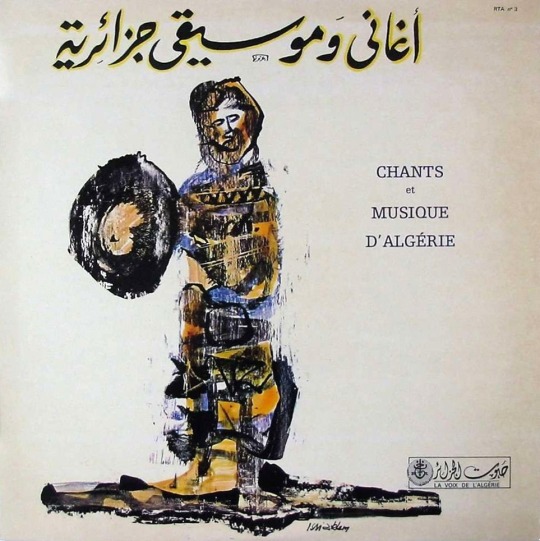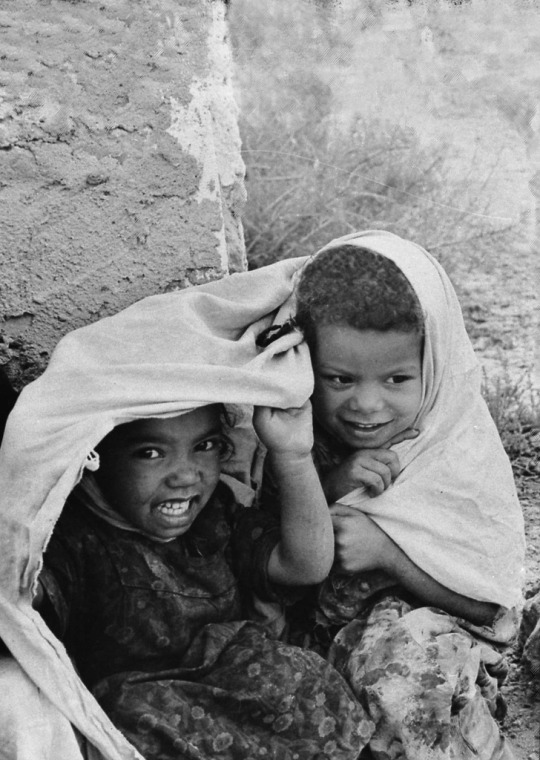Link
Podcast - talking about all things education, equity and empowerment.
1 note
·
View note
Text
Are psychology, mindfulness and faith a triple threat?
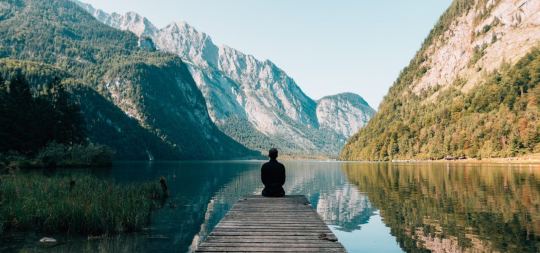
I know, we are being inundated. From this account to that account, none of us can get away. To be mindful and free, open and breathing: there’s a buzz surrounding it, right?
And to your dismay, no, I am not going to follow that up by bemoaning how it’s just a fad, a rage, or on trend. Actually, somethings we want to be on trend. And that is just it: why can’t we make it trendy, without farce or mockery; that people are finally being allowed to express their mindfulness routine or regime, their spirituality and slow yet steady rhythm with those around them (and beyond)? More so, as an educator, I feel the blurred lines between the mind, faith and the secular world we live in more and more, is becoming, well, even more blurry.
With the current environment we are manifesting within, there’s a certainty that every teacher, with their lanyard now hanging shyly away, is experiencing a wave of sentiments. Whatever it is you’re deciding to do, though, is okay.
So this mindfulness here; it’s reached the western world with a real oomph. From influencer, to celebrity, to scientist and even in the educational domain, to be mindful, to bring focus to that in your sphere has become much the norm for many. No doubt, many philosophers and theologians have mandated such practices for thousands of years, with no marketing, no url and no like count. But it existed. Because that’s just it: it is about the existence inside and outside of your mind. It’s not about control; rather, about welcoming in whatever the motion is telling you, riding it, and dealing with it as, is. In fact, allow me to change the word ‘deal’ here, as it insinuates negative connotations of having to fix problems upon problems. You’re allowing it, as, is.
Hello uncomfortable affair. Welcome. Let’s see what we’re going to do with you.
And of course, lest we forget that being mindful is not somewhere we run to when a discomfort occurs, no. I think this is often the catch: we humans can be so quick to jump to a higher force or vibration when things are squeezing us in the wrong way, that when comfort calls, we don’t acknowledge it. We do this with our pupils, with our colleagues. Mediating a problem between the two crowds, and now you’ve made it a party. Blame or fault is not being thrown here however, more an awareness of engrained behaviours we now, perhaps, are starting to recognise, mindfully.
So what do you picture when someone speaks of being mindful? I can guarantee this question is too loaded for me to quickly answer for you. I could have put words in your mouth and said, “sitting down, eyes closed, breathing and listening to an app.” No doubt, that image probably did make a preview in some minds; however, who’s to know who is reading this article? Language aside, the reader of this article, (well, you) could be sat anywhere in the world.
Let us picture it.
One may be sat in South Asia, perhaps somewhere in Sri Lanka or India, where mindfulness has been intertwined with the religion Hinduism for millennia. From the Bhagavad Gita’s discussions of yoga to Vedic meditation, the history of Hinduism reads in part like a history of mindfulness. But as always, history cannot speak for itself and say, “hey, I started it!”.
Or perhaps there’s a being, nestled somewhere in Nepal, or China. Cross legged, he or she faces a golden Buddha statue and gong. They too, are practicing mindfulness. It’s important to note that Buddhism is not a religion, but rather a school of thought and philosophy.
And then we travel (metaphorically for now), to Egypt, or Turkey, or even the depths of the desert in Algeria. Here you see a spinning being, spinning so much their outer shell becomes blurred: but you can definitely feel it. It’s imageless but speaks a thousand words. This could be dhikr, or remembrance, for many Muslims. And you guessed it, mindfulness.
And the list could go on, and on. Religion and philosophy are carried and practiced by those who announce their connection to it. The secular behaviour that comes out of it, is permissible too. I think to be mindful, is also to thoughtful, curious and inquisitive about the origins of what’s helping you in your journey of reflection and wellness. A give back thanks, to be able to give back in your own sphere.
So caan one be mindful, religious and reap the psychological benefits of this act? You may read and research as many individual cases of such studies, but as those with a faith may tell you, it’s a feeling that is often times inexplicable. Just as a secular yoga session leaves you feeling rejuvenated with a new found spring in your step, so does someone who is practising it with their own scriptural mantra.
The idea here is to be mindful (pun intended, wholly) that what’s creating focus and clarity for you, is probably channelling its energy in someone else, too. It just presents a little differently.
This article was originally published here.
0 notes
Text
1 note
·
View note
Link
An article by me.
2 notes
·
View notes
Text
Why Black Lives Matter in education, and beyond
As my stomach turns at the loss of yet another life due to skin colour, I can’t help but feel the injustice seep beyond the media headlines and flow straight into the classroom.
Corona aside, our pupils will be making their way back to our classrooms: the rooms we deem safe, inclusive and a home away from home for many. But what use is a home, if the bodies inviting you in aren’t digging away beneath the surface to truly understand who you are?
As I speak, I speak from a primary school perspective: though I have no doubt that the message I try to convey will be echoed by practitioners across all phases of a student’s educational journey.
“I can’t breathe.”
Let us give pupils, even as young as age 8 or 9, more than the benefit of the doubt, and elevate their intellectual capability when it comes to societal understandings. They are very much woven into the fabric of society that we, as adults, live and experience. Their perspective may be tainted, lacks experience from an aged point from view, but is still very much valid. So, what happens when your child comes to your classroom door, full of questions as to why is this person being hurt because of their skin colour? Why do people do things like this? Will it happen to me or somebody I know?
For a large part of a child’s life at primary school, we have the backgrounds that make up their character through family set up, language and perhaps religion, too. There’s only so much one can know, and the discussions being had at home. Especially if linguistics is a barrier. And so they may turn to you, teacher, to console their thoughts, or help map out what they’re feeling. However, you may not have the tools to completely sympathise because you don’t share the same heritage, cultural background and even more so, skin colour.
Yes, skin colour plays a huge role in all of this. To say that colour is not a factor is so incredibly reductive. To lump all who don’t fit the narrative of white British, is again, reductive and dangerous. I admit, I have used POC (people of colour) before, and am someone who falls into that category. But once again, POC creates a binary between white (usually elevated in a positive light) and POC (remissive, othering). Within that category actually lies a spectrum of colours, languages and faiths. And some intermingle. Your pupil is not a POC: they are what they identify as. So in this instance, black is the magic, powerful word.
As Maslow proposed in his hierarchy of human needs, basic wants must be met before pupils can turn their attention to learning in the classroom. Many of these factors are often outside of our realm of reach as teachers, but we push to cater for them nonetheless. After securing food, water, shelter, and safety from harm, people seek as their next most important needs; affection, belonging, and esteem. If you don’t see yourself in the learning you are acquiring; if you don’t ever get your name pronounced properly, and if you are treated as though you are no different to anyone else, then hereby lies a problem.
Dr Remi Joseph-Salisbury, in his paper Black Mixed-race Male Experiences of the UK Secondary School Curriculum duly notes from a pupil he spoke to during his writing:
The fundamentals of math actually developed from Arabia, from Asia, not from England, it wasn’t Caucasian based, they didn’t just make everything themselves actually there was a history and it came from the Middle East. They talk a lot of the mathematical equations and formulas, all of that mathematical foundation, it came from the Middle East and that’s not shown in the education system that yeah, math is fantastic and it’s a universal language. . . the fact that the number naught was created by an Indian, you know, how many children actually know that? Is it important for them to know that? Yes because it means mathematics becomes culturally diverse, it’s not just something that was created by Jesus Christ or something, you know what I mean? Joseph-Salisbury, R. (2017)
That is telling. A curriculum overhaul is perhaps the start of a discussion that doesn’t dictate, but rather allows pupils to see themselves in the activism and the history of the world we live in. And that includes the Britain we live in today. However, as empowering as it can be for a pupil to learn about the history of their people and their contributions, it can also be dehumanising if not done correctly.
If as an educator, enhancing and broadening the spectrum of who is represented in your curriculum and learning makes you uncomfortable; then you’re doing it wrong. The step towards more culturally relevant content in schools should not be controversial, or a favour. Black History Month has been an annual fixture in the UK since 1987. But a month is not enough. A month does not equate for the plethora of culture and experiences of a lifetime of black children and their history. History is everything, from black to white and never subjugated to a sole time frame.
As educators, we must raise expectations of Black pupils and counteract myths and stereotypes. We must be acutely aware of the way deep-rooted stereotypes and personal prejudices affect attitudes and behaviours towards them, as children and pupils will no doubt feel this too. Any form of colour-blindness is an inappropriate attitude and approach to adopt when providing for our pupils, as all it does is diminish a whole experience, and perpetuate othering.
Being given flexibility to teach isn’t enough. I believe there is a real need for more centralised support in making sure people know how important this is, especially educators who are not black. Your pupils deserve it.
Posted originally on The Chartered College.
0 notes
Link
How I… embed religious literacy in the classroom and beyond.
0 notes
Link
An article I’ve written for the Chartered College of Teaching. An introduction:
I know, we are being inundated. From this account to that account, none of us can get away. To be mindful and free, open and breathing: there’s a buzz surrounding it, right?And to your dismay, no, I am not going to follow that up by bemoaning how it’s just a fad, a rage, or on trend. Actually, somethings we want to be on trend. And that is just it: why can’t we make it trendy, without farce or mockery; that people are finally being allowed to express their mindfulness routine or regime, their spirituality and slow yet steady rhythm with those around them (and beyond)? More so, as an educator, I feel the blurred lines between the mind, faith and the secular world we live in more and more, is becoming, well, even more blurry.With the current environment we are manifesting within, there’s a certainty that every teacher, with their lanyard now hanging shyly away, is experiencing a wave of sentiments. Whatever it is you’re deciding to do, though, is okay.
0 notes
Photo
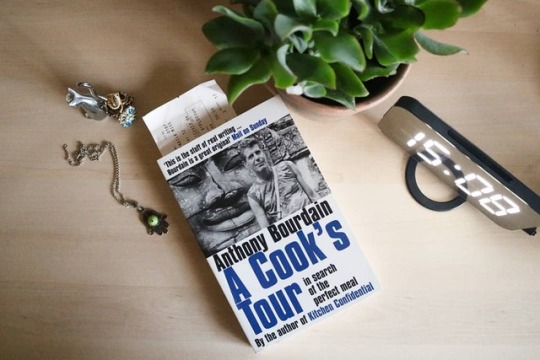
🧚🏽♀️ Food is love, and love is in literature. @anthonybourdain RIP. • written by the late Anthony Bourdain; I was directed to this after watching his show 'Parts unknown" (highly recommend). Anthony Bourdain, I feel, was the verbal and physical amalgamation of what my brain is capable of but I'm too shy to execute it. He writes as he speaks (which I complain about when teaching writing) but he does it in such a way, that his written form is up for debate and discussion. He talks about his travels as a young child with his brother and more in France (surname: Bourdain) and where his love for food came from in the most critical, delicious and hilarious way. He always referred to himself as not a chef, whereas the culinary world maybe disgaree. I understand what he means, as his ethic transcends beyond just food. He dabbles with science, culture, hard work and dropping the f bomb on occasion. I love this man. Rest in peace. #igreads (yes, that's a plane ticket as a bookmark). 🛫 https://www.instagram.com/p/BtIsoCXHSgX/?utm_source=ig_tumblr_share&igshid=1stuofblp1yqc
9 notes
·
View notes
Photo
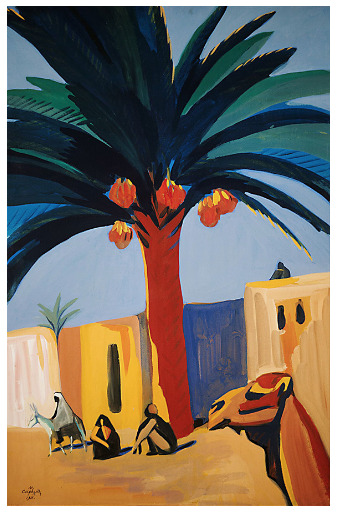
Martiros Saryan. Date Palm, Egypt, 1911,
cardboard + tempera
67 notes
·
View notes
Photo
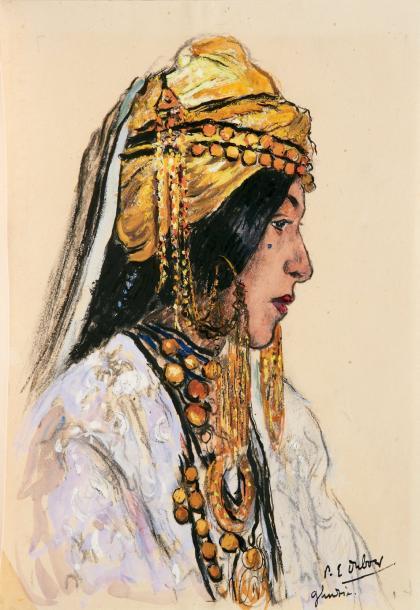
The Puritans of the South Algerian Desert . Illustrated by Paul-Elie Dubois engraved on wood by Pierre Bouchet.
122 notes
·
View notes
Photo
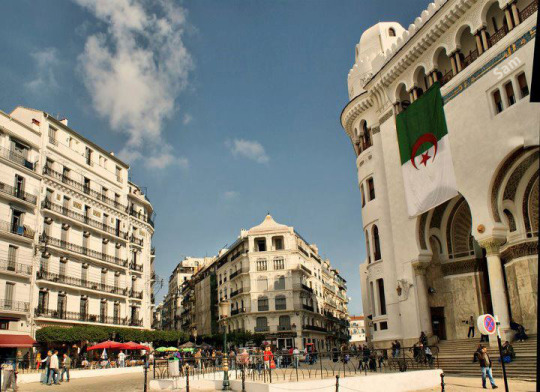
A letter to.
For the stereotype America creates of Africans. United Kingdom. Europe.
I am African. I am not black. My ancestors were not enslaved. I do not ride a camel to school; nor do we trade women for cattle.
I play derbouka. I also play the tbel (tambourine). My rhythms catch you. They make you move like an African. Like a Berber. Like an Arab.
Rai. Chaibi. Kabyle.
I might see desert for days. I also see buildings. Sky scrapers. Sand alongside concrete. Heat married to cold. Snowy mountains whiter than any you’ll see on a ‘white Christmas day’ in the UK. This snow sticks. People ski. In the middle of the Sahara people ski.
We have cooling rivers. Chelif river. Mazafran river. Seybouse river. Sometimes there are droughts. Sometimes there aren’t. Our rivers have history. From Roman rule. Saint Augustine was the bishop of Hippo Regius. That’s present day Annaba, Algeria.
Algerian Arabic. Darija. Classical Arabic. French. Spanish. English. Kabyle. M'zab. Chaouia. Tamazight of Blida. There’s even Algerian sign language. Take your pick.
Yes, I am African.
I paint henna on my hands. A little circle on the palm. It welcomes in the new moon. I also dip my fingers in henna. My feet. Sometimes hair. Men do it too. Yes, we’re African.
Our skin colour ranges. Depending on the sun. Depending on your roots. Who cares.
Chorba. Rechta. Merguez. Chakhchouka. Berkoukes. D'am. You can call the last one cous-cous. We have over fiver names for it anyway.
Sometimes I’ll wear an abaya. Sometimes I’ll wear a jeba. Melhfa. Gandoura. Or just a t-shirt and jeans. Yes, still African.
Muslim. Christian. Jew.
Roman rule. Islamic rule. Ottoman rule. French rule. Independence. Well, independence is always questionable.
I am African. I am not black. My ancestors were not enslaved. I do not ride a camel to school; nor do we trade women for cattle.
Naila Missous.
363 notes
·
View notes
Photo
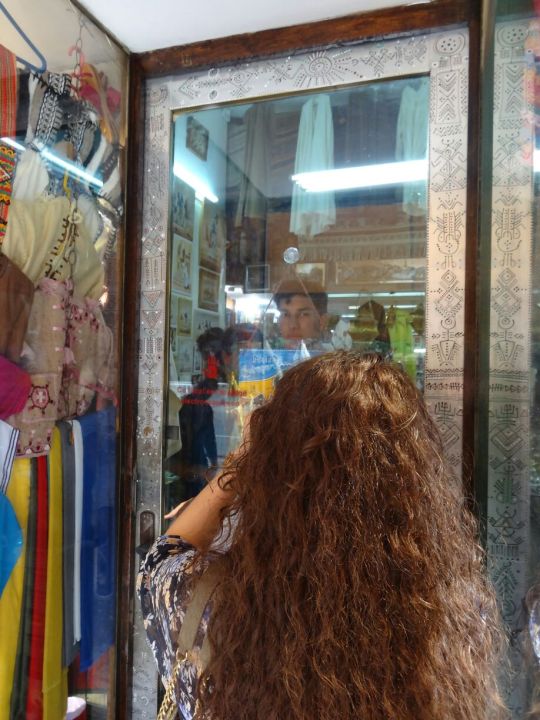
outside looking in. Algiers, March 2016.
Letters from the diaspora
Some complain about going into a restaurant in their bi-country, that smells of bled because it’s not authentic.
But it never will be authentic. Authentic is defined as not a copy; genuine. There is nothing genuine about a dusty coloured carpet pinned up against the wall, as the rain drops race with one another on the window connecting the walls.
But then this leads onto whether I am authentic. If my name, my skin, my parents, my hair, the languages that regurgitate out from between my lips make me any better than this restaurant. Am I merely a product of show that shows a cultural exterior, yet the rain drops are still there racing parallel against me, reminding me that I’m just a copy.
You find yourself constantly upset with the social and political situation of that land far away. That place that aggravates your nerves, yet you still fork out the money to fly there. A toing and froing of what is against what should be.
All of this is probably because it is part of your personality, and you tend to have a lot of pleasant memories. Warm memories that make you a tenant of your mind more than of the reality around you. It disregards percentages and numbers. It’s your mother, father and friends.
“Much as I have no wish to hurt anyone’s feelings, my first obligation has not been to be nice but to be true to my perhaps peculiar memories, experiences and feelings.”
― Edward W. Said, Out of Place
50 notes
·
View notes
Text
Up
And so here it is.
From the day I was born it was written that strife would be a part of the journey.
That highs and lows were a mere ingredient in the cocktail of my life.
That goodness comes but be wary of the bad that flows straight after.
That your roots will always keep you tied to something special. Something that will make you feel safe and a part of a wider family.
That outlaws will always be there, and their intention may not be to hurt you, but they will anyway.
They say the pen is mightier than the sword. People destroy both. People use swords to destroy other people. People use pens to blotch and ruin other people. A people-less world is impossible, but a peaceful world with people is even more impossible.
Never say never.
When the heart bleeds and you think no one can relate to how you’re feeling; remember that you really are not alone. Someone miles away is feeling the same thing. Someone miles away wrote a song that sings your feelings. That’s the one thing all people have in common: emotions.
Some people choose to exercise their emotions differently, using them freely and devouring them. Others restrict passage of any emotion. Emotions cause chemical reactions within the body. The same way a work out releases endorphins. The same way an exam releases stress related signals such as spots and headaches. Emotions do the same. Some don’t want any sign of emotion. So they become dry.
A dry, pruned up people.
10 notes
·
View notes
Text
Recently, I've been stuck between a rock and a hard place | Algeria
The hard place? Algeria. The rock? Non-feminists.
It’s sounds cliché, and almost a battle not worth uttering but I’ve found within my realm of writing, opinion and journalism, the Algerian man* does not enjoy including women in their systematic struggle. What does this mean? Well, if you mention anything about women and their rights, you’re told “well we had the terrible 90’s so why would YOU want to go through that again?” and “we’re free from France that’s freedom enough” and let’s not get started on the Ikhwan in Algeria (Allah yekhreb bitkoum).
I’ve been reading and reading and reading. All the politics, sociology and social media deals next to nothing with women. Unless you’re a woman who talks about the general Algerian social or political problem. But never about the women themselves. Why do I see more about the women of Morocco and Tunisia, and know more about their plight than my own?
Unfortunately, all that has happened is that I am faced with very stubborn and defensive responses when I do ask about the women. And sadly, even the women themselves don’t know much about or it talk about it. It’s easier, for example, to talk about the oil exchanges in North Africa, and the border control between Libya and Algeria. You’ll fit into the male political world that way.
When you do speak about women, you’re met with ‘we’re all struggling’ and 'the system fucks us all’. If I remember correctly, the system doesn’t disallow you from divorce without consent. Or the fact that more than 50% of University leavers are women yet, not even close to this percentage of women are working at University level jobs.
And that’s just the women who have been educated. What about the bedouin or travelling women. They’re instead engraved into a culture that has had the same rhetoric for hundreds of years that thrives off making women work on the land and marriage is their first port of call once puberty hits.
When I share a film, or quote, or book title about women in Algeria, I almost hear tumble weed. Why? Because it’s not being talked about by CNN and that Political Analyst so it must be irrelevant.
Something happened earlier this year with the PM in Algeria, Abdelmallek Sellal. This clown, known for his notoriously immature tongue and weak grasp of any language, never mind the Algerian dialect once again forgot his role as the Prime Minister of Algeria and let slip an extremely unwarranted and sexist comment. What did he say? Well, he compared a worm to the former minister of Communication and Culture Khalida Messaoudi. Of course! It simply became a 'oh what is he like’ moment among Algerians in Algeria and abroad. What a shame.
Whether you like Khalida Messaoudi or not (and I’d prefer you read about her work as a feminist and activist in the 70s and 80s before you go off on a 'she’s a bad politician’ rant) is not the point. The point stands that at the expense of this woman, in a high level occupation at the forefront of people’s attention in political Algeria, the butt of a joke was a woman.
It’s 2014 and I’m still getting laughed at in Algeria for caring about whether a woman exercises her rights to education and work and marriage.
*by man, this can also constitute for many passive women. Let’s not be hasty in blaming all men. But you knew that.
20 notes
·
View notes
